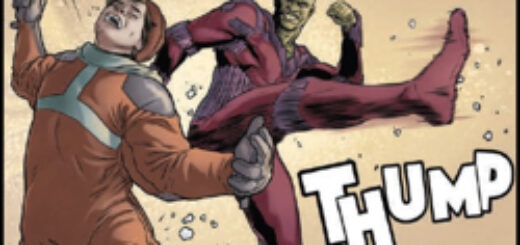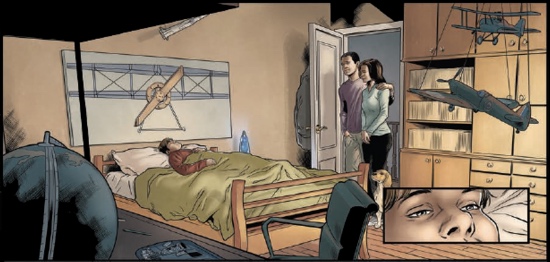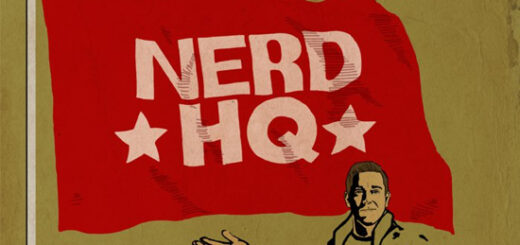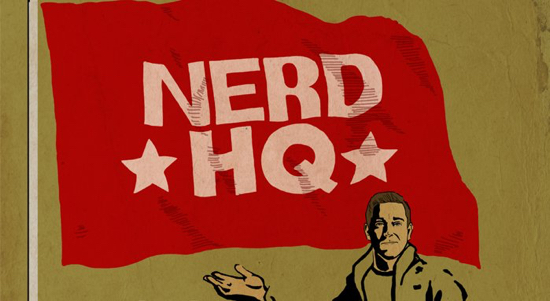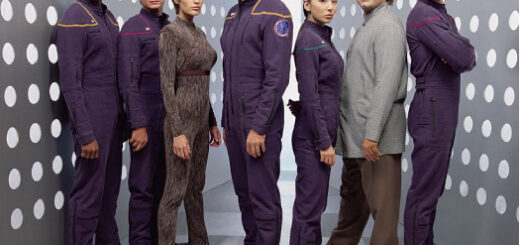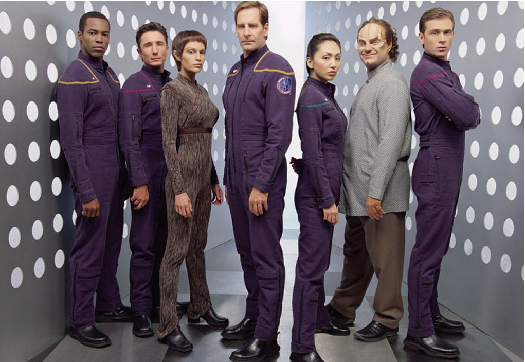Martha Thomases: Liverpool To Waypoint – Tiwary Strikes Again!
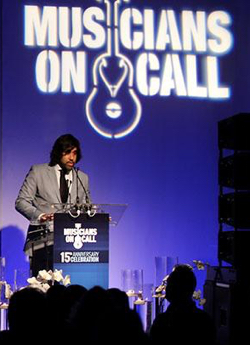 Vivek Tiwary has been my friend for more than 15 years. We met through mutual friends, and bonded initially over rock’n’roll and cancer. Immediately, I thought he was one of the coolest people I’d ever met. These are some of the things Vivek has done: Broadway producer (of A Raisin in the Sun, American Idiot, among others), a tech entrepreneur who used his music industry chops to help talent deal with the business, and co-founder of an amazing non-profit that, among other things, helped soothe my husband as he was dying.
Vivek Tiwary has been my friend for more than 15 years. We met through mutual friends, and bonded initially over rock’n’roll and cancer. Immediately, I thought he was one of the coolest people I’d ever met. These are some of the things Vivek has done: Broadway producer (of A Raisin in the Sun, American Idiot, among others), a tech entrepreneur who used his music industry chops to help talent deal with the business, and co-founder of an amazing non-profit that, among other things, helped soothe my husband as he was dying.
You can imagine my surprise when I found out that he is also a huge comic book nerd.
We don’t have quite the same roots – he’s a Marvel fan, I’m a DC girl – but we bonded over our love of the form. In fact, when he was having trouble finding a way to get a movie made about Brian Epstein, I convinced him to adapt his screenplay to a graphic novel script. The resulting book, The Fifth Beatle, won tons of awards and sold a gazillion copies, and will soon be on your TV.
Thus, I have tried to take credit for his success, including the things he did before we met, and his fabulous wife and his adorable children.
Recently, Vivek wrote a story for IDW’s Star Trek: Waypoint. This seemed like as good an excuse as any to talk to him about what he’s working on these days.
MT: I read your Star Trek story. It’s so different from The Fifth Beatle!
VT: I guess it is.
MT: The Beatles and Star Trek are, pretty much, the Sixties.
VT: I suppose so. I was born in 1973. To me, these are just two things that I’m passionate about. I don’t know that there is any pop culture connection between the two tied to why I like them. I’m a sci-fi kid and I’m a music kid. As you probably saw from reading the story, while it is a Star Trek story, really, at heart, it’s a boy-and-his dog story. As a writer, I lean towards those kind of human interest stories. It’s a story about loyalty and childhood dreams. It’s about how that child learns and carries those lessons throughout his life and applies those to leadership.
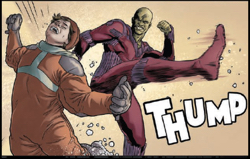 MT: I’m not familiar with Star Trek: Enterprise, although I love Scott Bakula. Is there time travel?
MT: I’m not familiar with Star Trek: Enterprise, although I love Scott Bakula. Is there time travel?
VT: There is. The last season of Enterprise revolves around what they call the Temporal Cold War. That stuff at the end is all very squarely part of the Enterprise last season continuity.
MT: Is the dog in that?
VT: Oh, yes. So, Porthos, Captain Archer’s dog, is a main character in the entire series. I may be biased because I am a fan and I am a bit of a Trekkie myself, but I believe it’s not just me saying he’s a beloved figure in the Star Trek universe in general. When I posted that I had done a Star Trek story that was, in a lot of ways a Porthos story, there were a lot of fans who were excited. A lot of people said, “Oh, does he get to have a piece of cheese?” There’s an on-going story where Admiral Archer gives him cheese, but it does a bad number on his digestive system. There’s a scene where Archer, in one of the episodes, goes away on a mission and is worried he’s not going to come back. He tells one of the crew members, “Look after Porthos. Give him a piece of cheese for me.” Even in the first Star Trek reboot that J. J. Abrams did, when Chris Pines’ Captain Kirk meets Simon Pegg’s Montgomery Scott, Scott had been doing early work on the transport. Scotty says “So, I tested it out on Admiral Archer’s prized beagle.”
And Kirk, “Wait, I know that dog!”
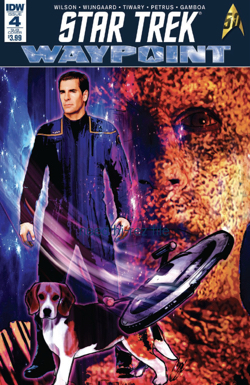 MT: Is Porthos related to the dog in your story?
MT: Is Porthos related to the dog in your story?
VT: I guess I haven’t thought that far ahead. I would doubt it. They’re both beagles, obviously. It’s possible, I suppose, that the Archer family keeps breeding beagles such that maybe Porthos is a descendant of Maska. Certainly he’s a spiritual descendant. To answer your question in geeky Star Trek speak, there is no continuity to suggest that they would be related. In fact, I could claim to have created Maska. He doesn’t appear anywhere else. One of the things I’m most proud of is that the Star Trek story is the first time a Star Trek: Enterprise has been written in a comic. I have the honor of saying I wrote the first. We’ll see what other comic writers working in that universe decide to do with Masca.
MT: Do you have dogs?
VT: I most certainly do!
MT: I noticed the dedication. I wondered if they were current dogs.
VT: Well noted! Laika is the first animal in space, and Sukhi Sioux is my pet papillon, It’s dedicated to a space dog and a dog that is close to my heart who is a fearless adventurer in her own right.
MT: What else are you working on in comics? In your life?
VT: In comics, I’m at the early scripting stages of my follow-up to The Fifth Beatle. The tentative title is A Mess of Blues: Colonel Parker and the Un-Making of Elvis Presley. Those readers who read The Fifth Beatle have had a taste of how I feel about Colonel Parker. I respect what he accomplished but I don’t respect him much as a human being. This book will continue that overall feeling about Parker, but I believe that there’s no such thing as ultimate evil or ultimate good, so one of the challenges for me is doing the research and finding the human side. While he exists in the same world of artist management, these unsung characters who are the architects of pop culture history behind the scene, he and Brian are polar opposites.
MT: Do you have an artist?
VT: There are a number of artists I’m talking to. We don’t have that nailed down. I’m doing that in tandem, working on the script while I talk to artists. I suspect I’ll be able to announce that before the script is done. The Colonel Parker story, to my mind, has three distinct elements. He was born in the Netherlands. His real name was Andreas van Kujik. He fled the Netherlands when he was a young man for shady reasons that aren’t entirely clear. He may have murdered someone. He had to flee the country. He stowed away to make it to America. He arrived illegally. He gave himself the name, “Tom Parker,” partially because it’s a generic name. He joined the carnival in large part because he loved it. He was a carny, a huckster. But also, in the American carnival, everybody has something shady in his past. It was a way to protect himself. What he should have been doing in the carnival was laying low, but his ambition, the chips on his shoulder, he couldn’t do that. He had to become an impresario. In those days, carnivals were very tied to fairs and country music. Which is how he found himself intersecting with Elvis. There’s no question that his carnival marketing skills helped him market Elvis as not just a country star but as a heartthrob and pop culture phenomenon. There’s no question that Parker was in large part responsible for the superstar that Elvis became. Parker also always treated Elvis like an “attraction.” Those are his words, not mine. Elvis fans argue that it is because of that attitude that Elvis never became the artist he should have become.
In Parker’s later years, he prevented Elvis from ever touring outside of the United States. The reason for that is because Parker wasn’t a U.S. citizen and Parker might have murdered someone. He couldn’t leave the country because if he did, he might not be able to come back. Parker didn’t like the idea of Elvis touring without him. There are all sorts of other crazy things that all tie back to Parker being this nomad. For example, at the very height of his career, Elvis was the largest single individual tax payer in the country. Elvis just paid his taxes. What he should have done, like every human being has done, you hire a smart accountant so that you pay as little tax as possible while being legal. Elvis just paid. There were business managers and bankers saying, “Parker, why don’t you have people going through his taxes? Why don’t you set up tax shelters?” Part of the reason was that he didn’t want the authorities looking into Elvis because he didn’t want the authorities looking into him. If you follow him to the end of his days, you find out that it did come out, and he ended up with all these lawsuits.
MT: He wouldn’t let Elvis go on tour without him?
VT: That’s exactly right. It wasn’t unusual for artists’ managers to go on tour whenever they could, but it was incredibly unusual for it to never happen. Brian Epstein went wherever the Beatles went as much as he could. He wasn’t at every single date. When it’s not possible, you let the tour manager handle it. That’s why you have tour managers.
Parker had these three distinct periods of his life. He had life in the Netherlands, which in a lot of ways is a noir murder mystery. He had his early Dust Bowl carnival days and the discovery of Elvis, which is real Americana. Then you have latter-day Elvis, when Elvis is a huge superstar. That’s a downward spiral of Elvis and Parker. That’s Vegas and Seventies and pop culture. So there are three distinct parts of the graphic novel. The plan is that it will be serialized in a way that The Fifth Beatle wasn’t. Whether this means several issues or three issues or something else, we don’t know yet.
MT: Speaking as a consumer, I’d prefer the whole book at once.
VT: I hear you, but for my fans, I think that would take too long. My instinct now is that it would be three parts. I’m also toying with the idea that maybe it’s three artists. The styles can be different.
MT: I’m sorry Ralph Steadman isn’t around to do the third part.
VT: I’m happy to say that through the success of The Fifth Beatle, I’ve gotten to know some amazing artists who are interested in working with me, but the best artists are busy. It’s easier to get wonderful, in-demand artists to do 30 pages or 40 pages than to ask them to do 120 pages.
MT: What else are you working on?
VT: While I’m working on the Parker book, who I’d like to do is do more of these one-shots, these short stories. I’ll do a Star Trek story, I’ll do a Marvel story, I’ll do a DC story. I want to work on licensed properties in a one-off capacity. For many writers, it would be a dream to work on a high-profile character, to do be a series writer. The fanboy in me agrees that would be amazing. But that’s not what I aspire to do. I want people to do what you did, to look at the Waypoint story and say, “Wow, this is so different.” I want people to know that, yes, I adore the Beatles. If you look at my resume, I worked at Mercury records. I produced American Idiot and The Addams Family musical. I produced A Raisin in the Sun and cast a hip-hop guy, Sean Combs, in the lead. I’m a music guy. But I’m also a Star Trek guy. I want to do more of that. I’m talking to a few editors at a bunch of companies about doing one-off stories. I hope those stories will be a surprise, too. Part of the reason why I’m doing things like the Star Trek story is because, as you know, it took about ten years to get The Fifth Beatle published. It’s not going to take ten years for the Parker story, but I want there to be more for my fans.
MT: Most of us contain multitudes.
VT: If people pick up the Star Trek story, they’ll see that, yes, it’s Star Trek, but there’s not a lot of technology in it. The technology is there to set up the story, but it’s not really used to tell the story. My favorite science fiction is like that. The science fiction is the engine that sets up the story, but it’s the human story that I love. My story is about a boy and his dog, about friendship and loyalty. At the end of the day, that’s what the world needs now, to stick together. If you think the world is under siege, you need to get together with your friends who also care about the issue and speak up. And the Brian Epstein story was about a gay, Jewish kid from a random town who changed the world. With LGBTQ rights being attacked, the world needs to see if it wasn’t for a gay man, we might not have the Beatles. I hope you’ll see that these are human stories that are connected to global social and/or political issues. That’s the connective thread between all my work.
MT: Who would win in a fight, the Beatles or the crew of the Enterprise?
VT: That’s a good question. The Beatles were pacifists, so I would like to think that they would talk their ways out of the fight. I think there would have been Beatles fans in the crew. Brian Epstein said the Beatles music would stand the test of time. So the crew of the Enterprise would be Beatles fans. I think all you need is love and somehow the fight would have been averted and they would wind up hanging out. There would not have been a fight.

